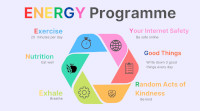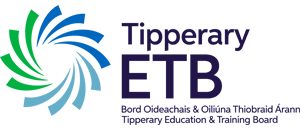
Challenge 1 – Exhale Remember to breathe properly
To participate in the challenge do the 4-7-8 breathing exercise 4 times per day for 2 weeks!! Students in 1st, 2nd and 3rd year – record your progress in the student journal and claim merits…read more below on how…..
The 4-7-8 (or Relaxing Breath) Exercise
Place the tip of your tongue against the ridge of tissue just behind your upper front teeth, and keep it there through the entire exercise. You will be exhaling through your mouth around your tongue; try pursing your lips slightly if this seems awkward.
Exhale completely through your mouth, making a whoosh sound.
Close your mouth and inhale quietly through your nose to a mental count of four.
Hold your breath for a count of seven.
Exhale completely through your mouth, making a whoosh sound to a count of eight.
This is one breath. Now inhale again and repeat the cycle three more times for a total of four breaths.
Note that with this breathing technique, you always inhale quietly through your nose and exhale audibly through your mouth. The tip of your tongue stays in position the whole time. Exhalation takes twice as long as inhalation.
This video explains it very well
Full credit for this video to https://gozen.com/
Some of the researched benefits of controlled deliberate breathing are
- slows the heartbeat and can lower or stabilize blood pressure.([i])
- It helps you relax, lowering the harmful effects of the stress hormone cortisol on your body ([ii])
- good way to reduce stress and relax([iii])
It is important that it is done properly – Controlled, deliberate deep breathing ([iv]) is important. It must be done properly. Just taking in deep breaths or not breathing can be harmful.
See more at:
[i] https://www.health.harvard.edu/staying-healthy/take-a-deep-breath
[ii] https://www.healthline.com/health/diaphragmatic-breathing#benefits
[iii] https://www.uchealth.org/today/understanding-breathing-and-the-importance-of-taking-a-deep-breath/
[iv] https://www.calmwithyoga.com/dangers-deep-breathing-done-incorrectly/
Challenge 2 – Random Acts of Kindness
A random act of kindness is where you do something nice for someone and do not expect anything back in return.
- Hold open the door
- Thank your teachers
- Thank your parents
- Leave a small gift for someone
- Write a thank you note and post it….
- Give a genuine compliment
- Volunteer your time to a charity or event
- Pick up rubbish
- Tidy your bedroom
- Help without being asked
- Include someone
- Make a cup of coffee for your parent
What is the evidence that this works
Random acts of kindness toward others can increase oxytocin, which is a hormone that makes us feel connected and helps trust see more on this here
There are many benefits for the giver see https://positivepsychology.com/random-acts-kindness/
If you would like to read studies and see the evidence that it works see the research at https://ggia.berkeley.edu/practice/random_acts_of_kindness

This work is licensed under a Creative Commons Attribution-NonCommercial 4.0 International License.



